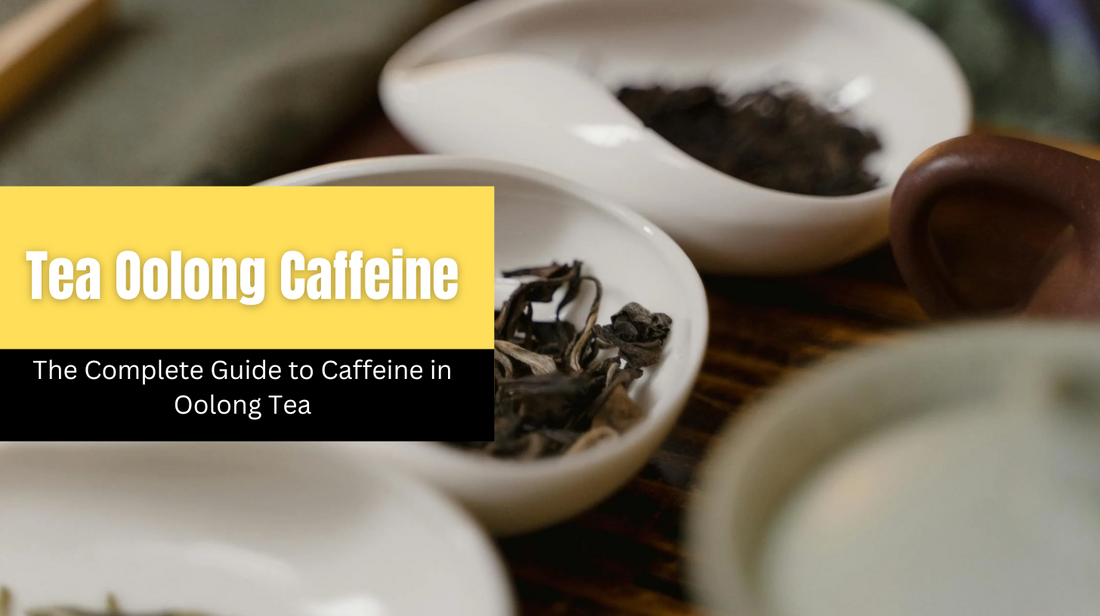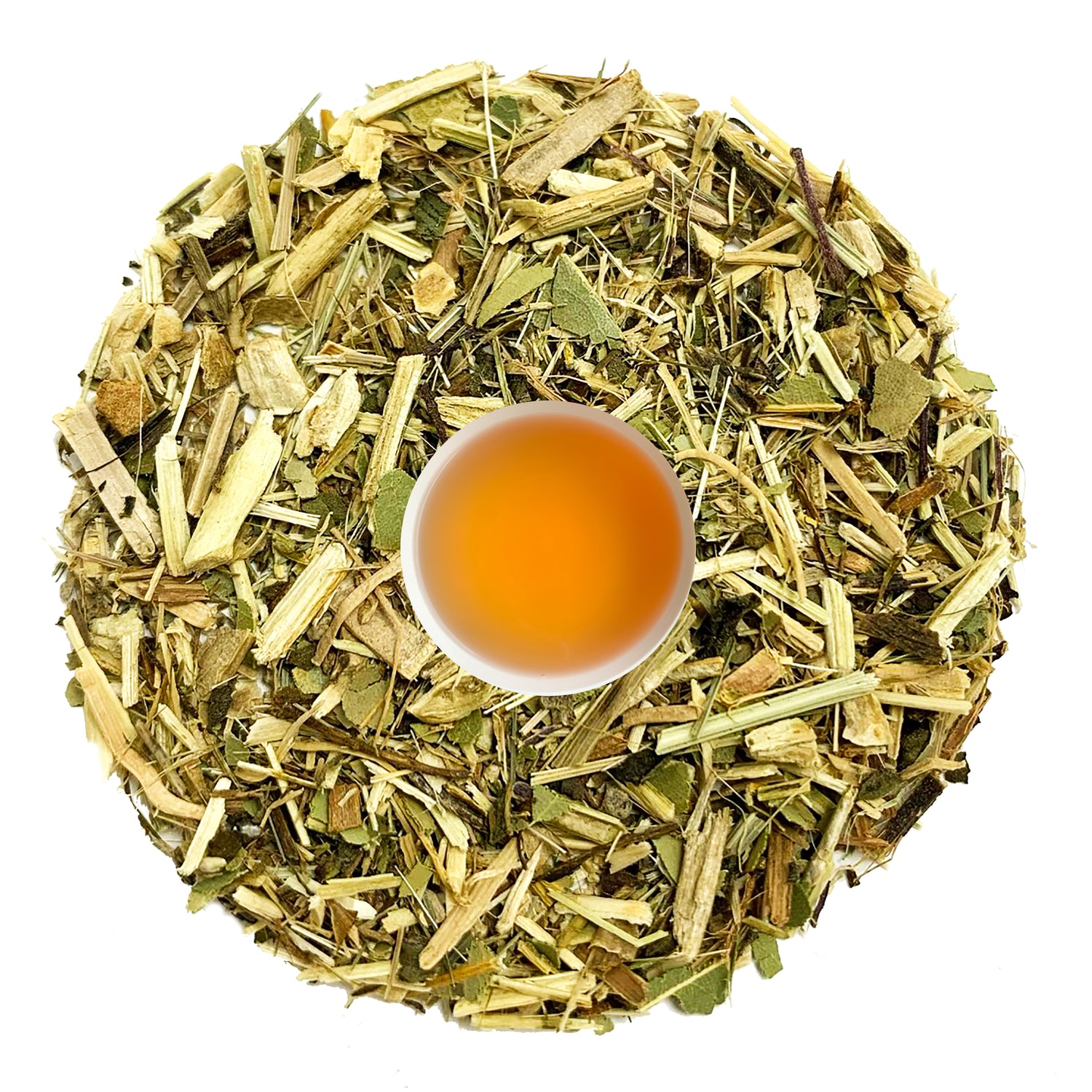
How Much Caffeine In Oolong Tea? The Complete Guide
Caffeine is one of the most talked-about components in tea, especially for those looking to balance energy, focus, and relaxation. Oolong tea sits perfectly between green and black tea in terms of oxidation—and its caffeine content reflects that too. But how much caffeine does oolong tea actually have? Can you drink it before bed? Is it a better option than coffee or black tea?
In this blog, we break down the topic of tea oolong caffeine from every angle, so you can decide how and when to include oolong in your day.
How Much Caffeine Is in Oolong Tea?
Oolong tea typically contains 30 to 50 mg of caffeine per 8 oz cup, depending on factors such as:
- Leaf grade and quality
- Steeping time and temperature
- Cultivation altitude
- Oxidation level
To compare:
- Green tea: 20–35 mg
- Oolong tea: 30–50 mg
- Black tea: 40–70 mg
- Coffee: 90–120 mg
This means oolong offers a moderate caffeine lift—enough to awaken your senses but gentle enough to avoid the crash often associated with coffee.
Is There Caffeine in Oolong Tea?
Yes, oolong tea naturally contains caffeine. However, it is not overly stimulating. Unlike coffee, the caffeine in oolong is released more gradually, especially when paired with the amino acid L-theanine, which promotes calm alertness.
This unique synergy is why many people report feeling focused but not anxious after drinking oolong.
Can You Drink Oolong Tea in the Morning?
Absolutely. In fact, oolong tea in the morning is a great alternative to coffee or high-caffeine energy drinks. It:
- Supports metabolism and digestion
- Gently boosts mental clarity
- Helps reduce bloating, especially after breakfast
Try starting your day with Himalayas Best Oolong Tea, a premium loose-leaf option that delivers clean energy without overstimulation.
What Affects Oolong Tea's Caffeine Content?
Not all oolong teas have the same amount of caffeine. Several factors affect how much you'll actually get per cup:
- Oxidation: The more oxidized the tea, the closer it is to black tea—and the higher the caffeine.
- Harvest Season: Spring teas often have more caffeine than summer or autumn flushes.
- Leaf Style: Whole leaf oolong typically contains more caffeine than broken-leaf or bagged tea.
- Steeping Method: The longer and hotter you steep, the more caffeine is extracted.
For those sensitive to caffeine, shorter steeping at lower temperatures (around 180°F) is recommended.
Can You Drink Oolong Tea at Night?
If you're sensitive to caffeine, you might want to avoid drinking oolong tea close to bedtime. However, its moderate caffeine level makes it suitable for late afternoons, especially when compared to coffee or strong black teas.
For a more calming option before bed, herbal blends like 47° Tulsi Chamomile Tranquility Tea are better choices.
Oolong vs. Other Teas: Caffeine Comparison
| Tea Type | Caffeine (per 8 oz) |
|---|---|
| Green Tea | 20–35 mg |
| Oolong Tea | 30–50 mg |
| Black Tea | 40–70 mg |
| Herbal Tea | 0 mg (naturally) |
| Coffee | 90–120 mg |
Oolong tea is a smart middle ground for those who want a moderate energy boost without the intensity of coffee or the lower stimulation of green tea.
Related Reads:
- Best Slimming Tea: A Complete Guide to Natural Weight Loss
- Green or Oolong: Best Loose Leaf Weight Loss Tea
FAQs
1. Does oolong tea have caffeine?
Yes, oolong tea contains moderate levels of caffeine, generally between 30–50 mg per cup.
2. Is oolong tea good in the morning?
Yes, it’s perfect for morning energy without the harsh buzz of coffee.
3. Can I drink oolong tea before bed?
If you're caffeine-sensitive, it’s better to avoid oolong late at night. Consider herbal teas instead.
4. Is oolong tea herbal?
No, oolong tea comes from the Camellia sinensis plant, the same as green and black tea. Herbal teas are made from herbs, flowers, and roots.
5. How does oolong compare to green tea for caffeine?
Oolong typically has slightly more caffeine than green tea but less than black tea or coffee.










